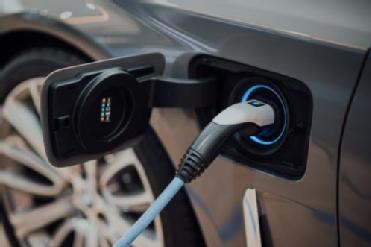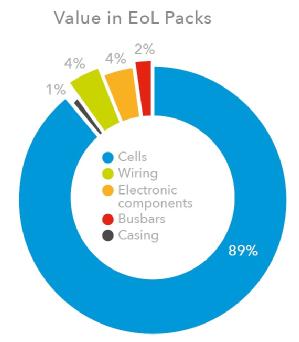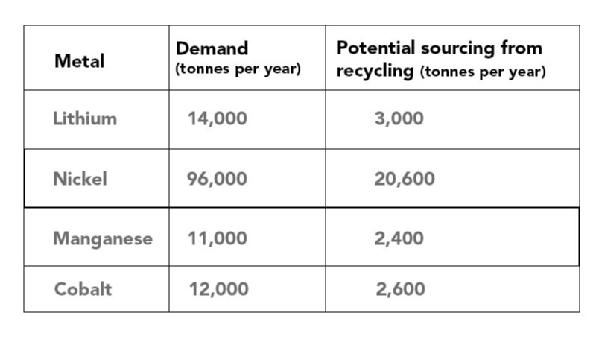WMG News
Report fears UK could lose out to the rest of Europe in crucial automotive battery recycling market

The UK is at significant risk of falling behind in the electric revolution and losing out to the rest of Europe on a crucial automotive lithium ion battery recycling market according to a new research report published this week by WMG at the University of Warwick and backed by the Advanced Propulsion Centre UK, the High Value Manufacturing Catapult and Faraday Battery Challenge at Innovate UK.
The new report entitled Automotive Lithium ion Battery Recycling in the UK by Anwar Sattar, David Greenwood, Martin Dowson and Puja Unadkat in WMG, at the University of Warwick calls for the UK to move quickly to establish commercial scale recycling for automotive lithium ion batteries
The WMG report notes that there are currently over a dozen such large scale lithium ion recycling facilities in the rest of Europe but none in the UK despite the fact that the UK is the second largest vehicle market in Europe with annual sales exceeding 2.3 million units in 2019, and is also amongst the top electric vehicle markets in Europe, with a 6% market penetration in the first quarter of 2020.
Jacqui Murray Deputy Challenge Director of the Faraday Battery Challenge at Innovate UK said:
“This new WMG report is a timely call for action. To achieve net zero carbon emissions, we need to be thinking about the whole system. Recycling of batteries is a challenge we see in the making, yet I am confident we can develop into a successful circular economy in the UK. Understanding, sharing and collaborating will accelerate the efforts needed to advance the right technologies and infrastructure to meet the future UK Automotive market.”

The report points out that the current costs of this recycling black hole are already enormous. As the UK lacks significant industrial capacity for lithium ion battery recycling, batteries are shipped to mainland Europe for material recovery. This can be a very expensive process, dependent on state of health of the pack, chemistry of the pack and size of the pack. This can mean that up to 75% of the total cost of recycling which can range from £3/kg to >£8/kg may be attributed to transportation costs and other factors such as the state of health and chemistry of the cells.
Even more concerning are the report’s comments that without its own significant recycling facilities, the UK could also be losing out on a major source of expensive and difficult to source materials to help manufacture new batteries.
By 2040, 339,000 tonnes of EV batteries are expected to reach their end of their life annually. The average value in end of life automotive packs is £3.3/kg for Battery Electric Vehicles and £2.2/kg for Plug-in Hybrid Electric Vehicles.
By 2040, the UK will also require 140GWh worth of cell production capability, representing 567,000 tonnes of cell production per year. Recycling can supply 22% of this demand (assuming a 60% recycling rate and 40% reuse or remanufacture). The break-even point for an automotive lithium ion battery recycling plant is just 2,500 – 3,000 tonnes per year if the chemistry contains nickel and cobalt.
To satisfy 2040 demand, the UK will need 133,000 tonnes of cathode metals per year. Much of this material can be supplied by recycling end of life batteries as the report shows in the following table:

Based on 8:1:1 chemistry assuming 60% of end of life batteries are recycled in 2040.
Dick Elsy CEO of the High Value Manufacturing Catapult says in the report
“WMG has been at the forefront of the development of battery technology for the future of electric mobility in the UK. Internal combustion engines and systems will be replaced by electric motors, power electronics and battery packs. A key part of that future is how we responsibly recycle the materials contained in the batteries and thus create a commercially valuable circular economy. This report is one of the best that I’ve seen to present the challenges and the opportunities in such a clear way.”
One of the report's authors, Professor David Greenwood Professor of Advanced Propulsion Systems, in WMG at the University of Warwick, concludes:
“Electric vehicles offer huge potential for decarbonising transport and improving air quality, but as we accelerate their early market we must equally be thinking about what happens at the end of their useful life. Batteries in particular contain significant quantities of materials which are costly to extract and refine and which could be hazardous to the environment if improperly disposed of. Investment is needed to create suitable recycling facilities in the UK within the next few years, and beyond that, research is needed to allow economic recovery of much greater proportions of the battery material. In doing so we will protect the environment, secure valuable raw materials, and reduce the cost of transport.”
